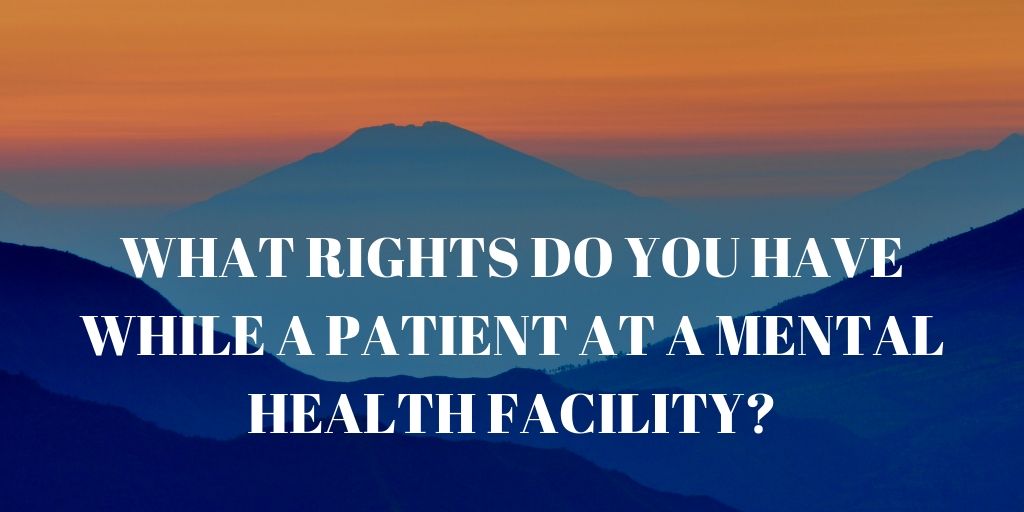WHAT RIGHTS DO YOU HAVE WHILE A PATIENT AT A MENTAL HEALTH FACILITY?
/While patients at inpatient mental health facilities do not have all the same rights that people have in the community, certain basic rights are protected. We will discuss SOME of the rights protected by the Massachusetts statute commonly called G.L. c. 123 s. 23 below.
FIRST, you have the right reasonable access to a telephone to make and receive confidential telephone calls. If you have trouble making your telephone calls, you can ask for and have a reasonable expectation to assistance when desired and necessary to implement such right.
SECOND, you have the right to “send and receive sealed, unopened, uncensored mail; provided, however, that the superintendent or director or designee of an inpatient facility may direct, for good cause and with documentation of specific facts in such person's record, that a particular person's mail be opened and inspected in front of such person, without it being read by staff, for the sole purpose of preventing the transmission of contraband.”
THIRD, you have the right to have access to reasonable quantities of writing materials and postage stamps. If you ask for reasonable assistance the staff at the facility shall provide it to you in the form of writing, addressing and posting letters and other documents upon request.
FOURTH, you have the right to have visitors daily, and in private, at reasonable times.
** The facility may limit visitors due to the pandemic and other safety concerns.
FIFTH, you have the right to a humane psychological and physical environment.
**“Each such person shall be provided living quarters and accommodations which afford privacy and security in resting, sleeping, dressing, bathing and personal hygiene, reading and writing and in toileting. Nothing in this section shall be construed to require individual sleeping quarters.”
SIXTH, you have the right to reasonable daily access to the outdoors, as weather conditions reasonably permit, at inpatient facilities in a manner consistent with the person's clinical condition and safety as determined by the treating clinician and with the ability of the facility to safely provide access.
The First, Third and Sixth items listed above MAY BE temporarily suspended, by specific designated people at the facility, if the patient’s exercise of such right would present a substantial risk of serious harm to such person or others and that less restrictive alternatives have either been tried and failed or would be futile to attempt. The suspension shall last no longer than the time necessary to prevent the harm and its imposition shall be documented with specific facts in such patient's record.
Otherwise, the facility should not deny a person these rights because they are exercising a protected choice, such as refusing medication. Additionally, a facility should not deny these rights as a form of punishment.
Have questions or concerns about mental health litigation? Contact us to discuss further:
E.M. Curran Legal LLC
10 Tower Office Park
Suite 314
Woburn, MA 01801
Phone: 781-933-1542
Fax: 781-933-1549













